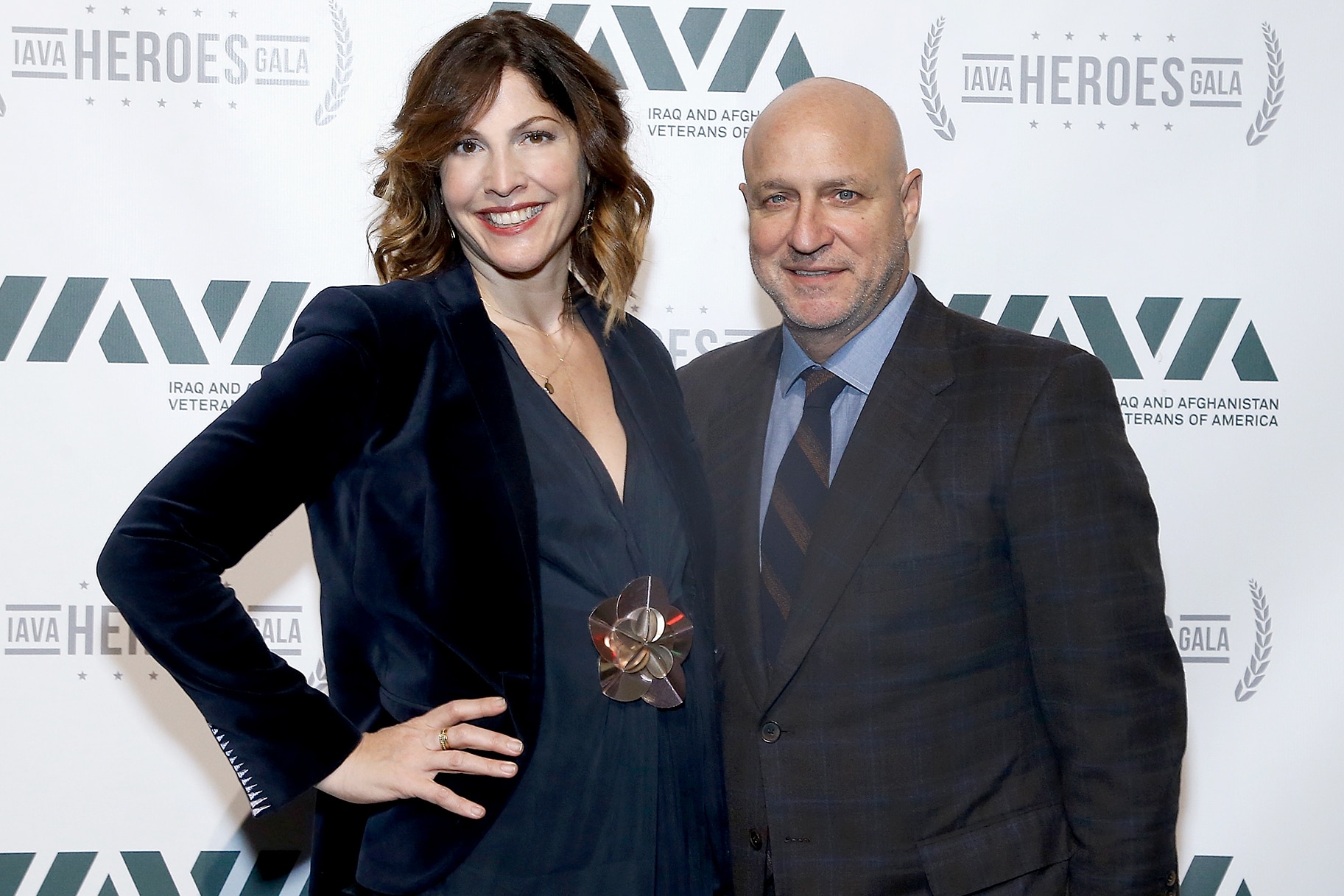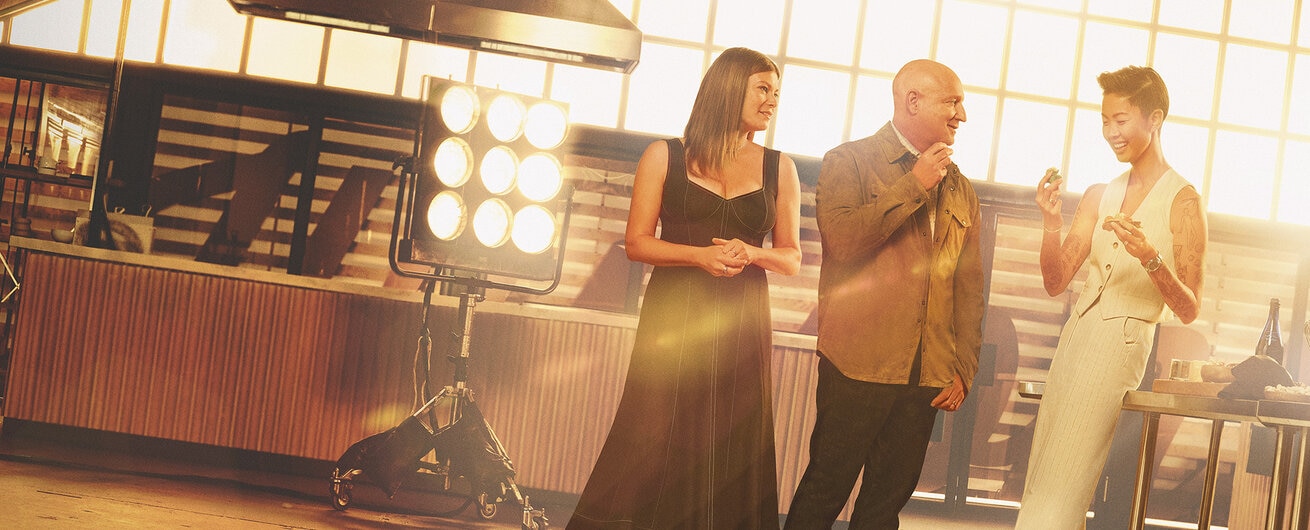
Create a free profile to get unlimited access to exclusive videos, sweepstakes, and more!
After Anthony Bourdain's Suicide, Tom Colicchio's Wife Pens Powerful Essay on "Bad-Boy Chefs"
Tom Coliccio's wife knows what haunts chefs like Anthony Bourdain — and her husband — and what can help.

After Anthony Bourdain death, Bravo's Top Chef head judge Tom Colicchio weighed in on the terrible loss. "What we are going to miss is the best of him," Colicchio told The Hollywood Reporter. "That the best was yet to come and now those stories aren't going to be told.”
And now, Colicchio's wife, the writer, filmmaker, and activist Lori Silverbush, is sharing her thoughts on Bourdain's suicide. In a powerful essay in Medium, Silverbush wrote, "The sadness of reading about Anthony Bourdain’s death last Friday morning was deepened by yet another description of him as 'the original bad boy chef.' Our culture tolerates the exuberant partying of young people for a time, but certain groups, like chefs, are granted a pass — celebrated even — for ongoing excess long into adulthood. The 'bad boy' trope is breathlessly trotted out to describe the generation whose muscular and irreverent approach to food — and life —came to define modern American cuisine in the 1980s and ’90s. It’s meant to invoke a salacious and unprintable past, a lusty defiance of social norms in service to the bottomless appetites of great talent. How about we all agree to start calling it what it is: unresolved pain."
She explained that our culture's celebration of the "bad-boy chef" for his coolness and machismo sends the wrong message to would-be immitators.
"Tony would have told you a different story," she wrote. "In fact, he did. Anthony Bourdain was the first to call out the bacchanalian oblivion of his past as an escape from darker, sadder truths hidden within the folds of his complex psychology."
And the kitchen, she explained, is a place where dangerous tendencies can be exacerbated by pressure to perform, and left unchecked: "Kitchens are also frenetic spaces where emotional pain goes overlooked and unsupported, fueling depression, anxiety, and low self-esteem. Enter drugs and alcohol, which lift the negative self-talk just long enough to rinse and repeat. The ‘bad boy’ fiction reinforces this toxic cycle: Power through, young man. Pain is for pussies."
She knows intimately about what these chefs go through because her husband was in his own depths before he emerged into the light and stayed there.
Silverbush offers some solutions for reframing the messages surrounding men like Bourdain — and Colicchio, in his former incarnation.
"Thankfully, today, we’re seeing an emergent generation of culinary leaders who celebrate vulnerability, openness and complexity — traits once disparaged as too female for a ‘real’ chef. Restaurants are searching for a new paradigm — one in which workers are fully seen and encouraged to seek help with their challenges. When people feel empowered to be authentically themselves, they can in turn lift up others, reject harassment, and do their best, most innovative work."
She concluded, "It’s time we recognize that the legendary revelry of 'bad boy' chefs was masking something else, and talk about it honestly. The next generation needs to know that sharing their struggles with depression or mental illness is a sign of strength, and that in seeking help, they will be supported and celebrated, as Anthony Bourdain deserves to be, for their honesty and humanity above all."





























